Select Sidearea
Populate the sidearea with useful widgets. It’s simple to add images, categories, latest post, social media icon links, tag clouds, and more.
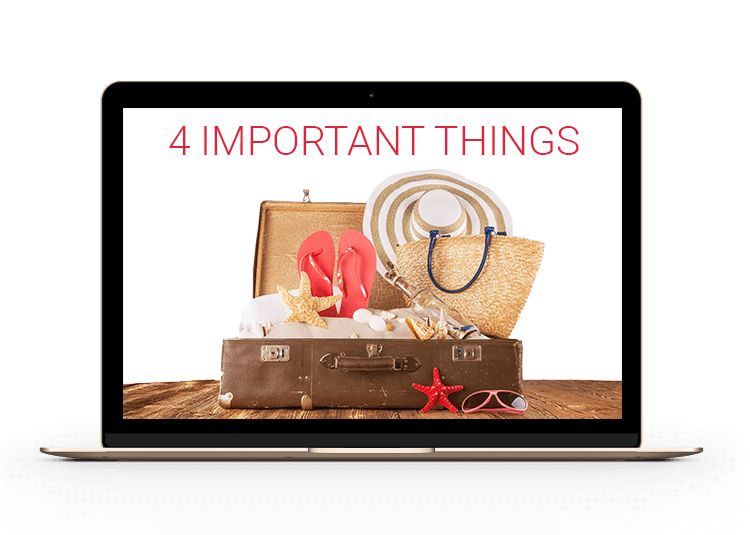
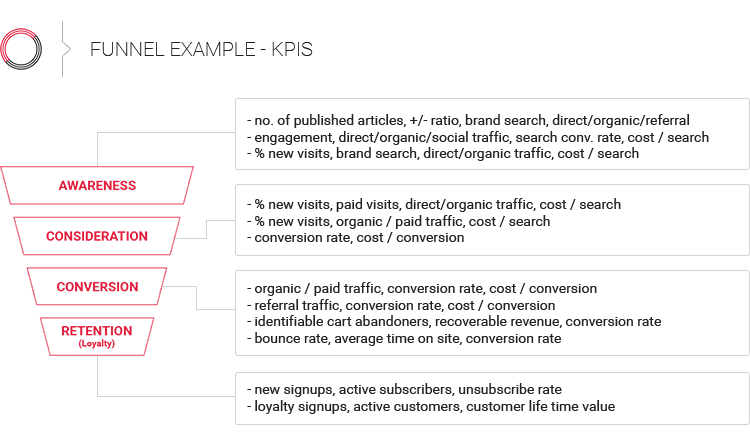
hello@youremail.com
+1234567890
+1234567890
Populate the sidearea with useful widgets. It’s simple to add images, categories, latest post, social media icon links, tag clouds, and more.


Iztok Franko
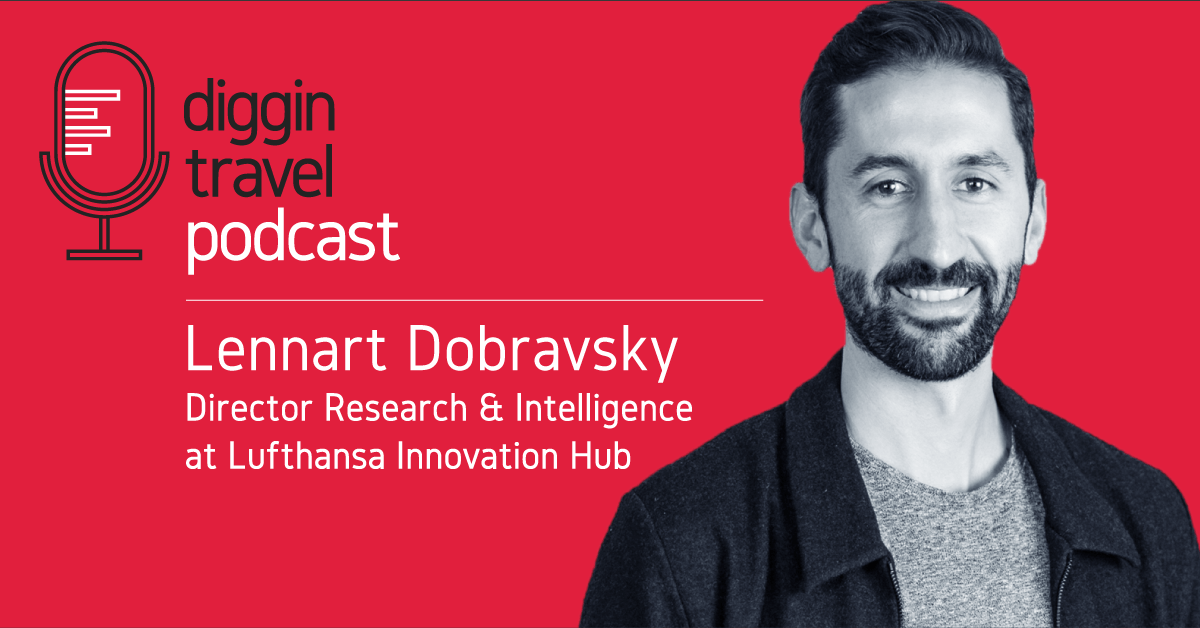
“We want to become a digital airline!”
It seems like every week there is a new piece of news about an airline CEO claiming that.
But how digital are airlines actually? And with so many different airlines and business models, it seems almost impossible to create airline digital benchmarks to measure that, right?
It may be so, but this is exactly what the research team at Lufthansa Innovation Hub tried to do.
Do you want to know how the Lufthansa Innovation Hub is measuring airline digital maturity?
Listen to the first episode of the Diggintravel Podcast via the audio player below, or read on for the interview recap and the full interview transcript.
My first podcast guest was Lennart Dobravsky. He’s a passionate tech analyst and a fan of the innovative approach to market research. For the past 2.5 years he has been employed as the Director of Research and Intelligence at the Lufthansa Innovation Hub.
Just as I do, Lennart believes that you can only manage what you measure. Interestingly, his team at the Lufthansa Innovation Hub has developed an innovative study of airline companies looking at how they tackle the challenges of digital transformation and how seriously they take it.
“Our mission is to create and capture value beyond flying,” Lennart emphasized during our podcast talk.
His team and other departments are engaging in trend analysis of thousands of data points in numerous areas, including startups, venture capital, news media, expert opinions, and patterns, but also airline website and app engagement—all that so they can better understand their current customers’ needs and the trends in the airline and mobility industry.
Recently, the Lufthansa Innovation Hub published the Airline Digital Index (ADiX). It’s a new airline digital benchmark and a fresh take on the digital maturity of airlines.
As Lennart explains it, the Airline Digital Index will provide you and other airline digital experts with a way to do airline digital benchmarks:
“The Airline Digital Index, maybe for your listeners, it’s a report we created over the past year that compares 26 airlines in the Western world based on 38 quantifiable metrics that we believe capture the complexity of digitalization.”
I find the mentioned 38 metrics most interesting since I agree with Lennart, who argues that digitalization is a broad topic. It’s a term that hides everything and nothing inside when you want to benchmark your airline to another and compare the stage and degree of digital innovation of your company.
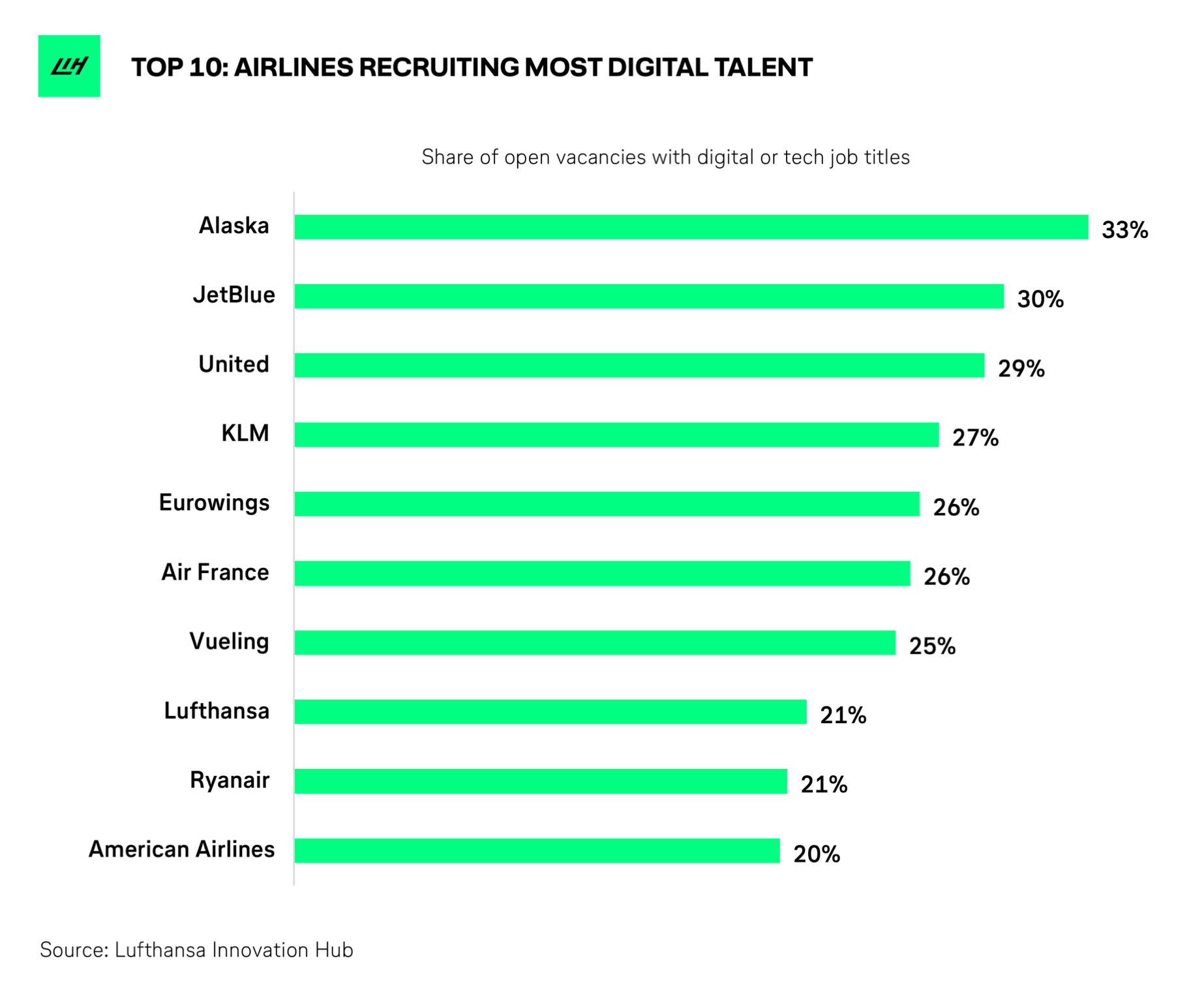
How much digital talent airlines recruit was one of the things evaluated by Lufthansa Innovation Hub
“That was the underlying reason for us to come up with the idea of developing an Airline Digital Index, just because of the complexity and the difficulty of the term ‘digital innovation,’” says Lennart.
The goal of this was—as he said—to come up with objective airline digital benchmarks. It’s important to know the industry leaders you should look up to, but also to understand why they’re going into a specific direction or developing something.
Just as important is understanding what is going on in our industry and which opportunities are emerging with that.
“In order to see those opportunities, we need to have a proper understanding of the status quo, and we want to know which airlines are best preparing themselves for the digital future,” says Lennart.
Listen to the podcast or read the full interview transcript to hear more about other Lufthansa Innovation Hub initiatives—for example, how they develop digital products, what other research they do, and how they look at the future of travel and mobility.
In addition, if you want more airline digital benchmarks reports, then check out our whitepapers on ancillary revenue and ecommerce trends:
Iztok Franko: Hi, Lennart, and welcome to the Diggintravel podcast.
Lennart Dobravsky: Hello there. Thank you very much for the invite and thanks for having me. Happy to be here.
Iztok: Great. Lennart, you are a Director of Research and Intelligence at Lufthansa Innovation Hub, but I see you were also doing research before you joined Lufthansa Innovation Hub, right?
Lennart: Yes, that is true. I actually started my career in strategy consulting, so I was working at Bain & Company before and was very much looking into all the potential that research tools and big data tools have to offer. This really fostered my passion in working with data and creating unconventional market intelligence that helps businesses actually reveal the driving forces behind all the radical shifts that affect today’s industries.
This certainly led me to my role here at the Innovation Hub, where I’m heading our research and intelligence team. Yes, we very precisely screen what’s happening in the market around us in order to better understand how we as an airline on the one hand, but also as an innovation hub on the other hand. And I’m sure we’re going to talk about the details of what we do, of how we address all those trends and emerging developments that are happening in travel and mobility tech ecosystem.
Iztok: Great. Is research something you always wanted to do? Because I see you also were involved in football. I had some passions when I was younger to be a professional basketball player and then ended up in digital. Is your story similar?
Lennart: Yeah, for sure. I guess the interesting side note here is I always wanted to become a professional soccer player as a kid, teenager, and also young adult. Unfortunately that didn’t play out as much as I hoped, and at some point I focused on following my second big passion in life, which is all about my curiosity and passion for learning and knowledge creation.
Fortunately at some point, I made the wise decision to let go of my football teams and decide to become a tech analyst. This is where my career started, as I mentioned before, at Bain & Company in consulting, and that led me to my role here at the Lufthansa Innovation Hub.
Iztok: Tell me a little bit more. What kind of projects and research do you and your team at Lufthansa Innovation Hub execute?
Lennart: Maybe if it’s okay for you, I will give you a brief introduction of what the Lufthansa Innovation Hub does in the first place.
Iztok: Yeah, sure, go ahead.
Lennart: Great. The Lufthansa Innovation Hub is the leading digitalization unit of the Lufthansa Group, so to say. We connect our parent company with the global travel and mobility tech ecosystem.
You might’ve seen our mission is to create and capture value beyond flying, and this leads me to my specific role here. We have several capabilities or departments within our Lufthansa Innovation Hub team, and one of them is the so-called discover capability that is run by the research and intelligence team. This is where I’m involved. We very precisely screen what’s happening in the market around us.
We engage in trend analysis of thousands of data points, to be honest, concerning startups, but also venture capital, news media, expert opinions, patterns, but also website and app engagement – always with the goal to decipher and predict the future of travel and finding the signals in the market that tell us more about the emerging trends that are taking place, that are forming, so that we can better address these trends via different mechanisms.
Iztok: One concept that you mentioned is very interesting, that you try to go beyond flying, so not only analyze and evaluate the core airline flight business, but going beyond flying. There’s a lot of talk about airlines becoming digital airlines, to go beyond flying. Some are talking about becoming OTAs, some are talking about becoming travel companions.
What are the key things that you see here now during let’s say the projects and activities that you do at the Innovation Hub?
Lennart: First of all, yes, indeed, our area of activity goes certainly beyond flying. The underlying reason is that taking a plane from A to B is only one component of the entire travel experience, as we all know.
For the longest time, airlines have I would argue solely focused on taking care of the passenger while they’re onboard, but obviously travelers need to get to and from the airport, for instance. So they need mobility support. They’re looking for housing when they arrive at the travel destination, whether it’s at an Airbnb or in a hotel. They’re also looking for things to do at the destination, so activities, experiences. And certainly they also wish for assistance, arguably even in digital formats, along the entire trip.
To cater to the traveler of today, we redefined our understanding of the travel industry sector. That’s why we’re also combining it with mobility and calling our ecosystem travel and mobility tech, because we consider the entire ecosystem of products and services along the traveler journey as relevant.
Answering your first question, and now leading over to us at the Innovation Hub, yes, we cater to all the segments in travel and mobility along the traveler journey, and ultimately we at the Innovation Hub want to simplify pretty much every single commercial trip in the world with our digital solution. I can give you a few examples if you want, to make it a little bit more concrete.
Iztok: Yeah, please go ahead.
Lennart: Okay, cool. For example, one of our ventures that we have created at the beginning of this year is called Rydes. It’s a mobility app. You can check it out online, rydes.com.
It’s a mobile app that allows the traveler to earn points for all the new mobility offerings that exist in today’s urban environments. We’re talking about scooters, shared bikes. The app has Ubers, Lyft, but also longer trip travel providers such as FlixBus. You can collect points for all those services whenever you take them, and then you can redeem these points for goodies and rewards, be it an Amazon voucher or a discount for another trip, a Starbucks coffee, you name it.
In a nutshell, we’re building a loyalty system for the non-loyal intermodal traveler of today – again, the reason being we are looking for new digital business outside the core of flying people from A to B because we think there’s so much going on in the market, and the environment is growing in terms of number of startups, number of services people consume. We want to have a share in all those trips. That’s why we partner with startups, we invest in startups, and most importantly, we build digital products internally ourselves. We act as an incubation player, so to say.
Iztok: You mentioned digital products, and one concept you mentioned before is digital and digital assistance. Do you think when airlines talk about becoming digital airlines, digital assistance part is the crucial part? Or how do you look at the digital assistance role?
Lennart: If we look at today’s most relevant traveler pain points along the flying experience, I would argue that assistance, especially in times of irregularity such as flight delays or flight cancellations, is certainly what travelers look for and seek. There are many initiatives in place by many airlines, including our parent company, of course, and this is certainly something the industry has to address. I believe it’s a very important pain point, maybe even the most critical one.
It’s an interesting research project we are running at the moment. We have looked at tens of thousands of TripAdvisor reviews for various airlines and analyzed their sentiment and also the major topics that have been discussed in all these TripAdvisor reviews, and digital assistance, like I mentioned, especially during times of irregularity, is something we see a lot in those reviews.
So yes, it’s a major pain point. To be honest, we at the Innovation Hub do not really focus on the digital assistance throughout the flying experience a lot, because again, it’s something that’s very closely related to our core business. This is where we have excellent colleagues sitting in our parent company who look at all these topics on a daily basis.
In the Lufthansa Innovation Hub, we focus on all these things happening before and after taking a flight. It’s not one of our focus fields, but for the industry itself and for the airline or the aviation space, obviously, yes, it’s certainly something travelers look for and where they expect better digital solutions, I would argue.
Iztok: Understood. Going back to the trend, I think you’ve analyzed part of this usage of the words and narrative about digital and airlines in your past research. Very certainly, a trend of airlines is talking about digital and, as I mentioned, becoming digital airlines and the role of digital and importance of building digital products that you were just talking about.
Was this the reason that you started with your Airline Digital Index research? Or what is the story behind this research? How did you come up with the idea to do it?
Lennart: The Airline Digital Index, maybe for your listeners, it’s a report we created over the past year that compares 26 airlines in the Western world based on 38 quantifiable metrics that we believe capture the complexity of digitalization.
It’s something we started based on the observation, first of all, that the term “digitalization” or “digital innovation” is so broad. It touches on so many aspects of an organization. It has an impact on strategy, of course. It includes or contains the cultural component. It reflects the product and IT infrastructure. So it’s very broad, and we believe there is a need to better define digital innovation from a data perspective.
We were looking for an approach to rate this complexity and broadness into more manageable components. That was the underlying reason for us to come up with the idea of developing an Airline Digital Index, just because of the complexity and the difficulty of the term “digital innovation.”
The goal certainly was to come up with an objective benchmarking, first of all explaining how we can measure digital innovation, and then secondly, how we can apply this benchmarking to a big sample of airlines in order to first of all have more transparency – who are the digital leaders, but also how much more room and improvement areas do we see for all airlines? We looked online and didn’t really find the tools or studies that helped us compare airlines and have a transparent view on how digitally advanced the airline sector is. We believed there was a white spot that we could fill.
Of course, digital transformation is one of the greatest threats to pretty much every industry, including the airline sector, and it also has lots of opportunities. In order to see those opportunities, we need to have a proper understanding of the status quo, and we want to know which airlines are best preparing themselves for the digital future. That’s why we spent almost a year in developing what we believe is one of the first purely data-driven airline digital indexes in the world.
It was published just 3 weeks ago. We’re very happy with the feedback so far.
Iztok: Yeah, I saw it and it’s very interesting, and definitely the concept that you explained, because there is so much narrative about digital transformation.
Lennart: Yes, exactly.
Iztok: You come to the challenge of how exactly you measure it, how exactly you compare, how you blend.
Lennart: Yes, exactly, and certainly there’s not one way of measuring digital innovation, right? But we believe we at least provide one solution or one opportunity in order to get more clarity into this digital innovation black box.
But of course, in the future, by the way, we are also hoping to expand it. We’re talking to many people from different airlines who read the report on where we can improve and which metrics we should add in the future, how we can span it across the entire world – because currently we are only comparing airlines in the Western world because the metrics we came up with, we struggled with capturing and analyzing those metrics, for example, for Asian airlines, where there’s language barriers.
But what I want to say is it’s our first approach, and we would like to grow this even more in the future.
Iztok: Was there anything that really surprised you when you had your framework and when you started evaluating airlines?
Lennart: Yes. I think there were surprises on several dimensions. One of the big takeaways for us, which was surprising to some extent, was to see the differences or to find out how digital innovation differs across various airlines.
To give you one concrete example, we analyzed the share of digital job postings that airlines have online in order to understand how much they focus on digital topics. There were airlines, for instance the leading ones, that had one-third of all job postings related to tech and digital jobs, while airlines at the bottom of this metric had less than 10% of digital jobs posted online.
This shows you the focus on digital innovation varies across airlines, which was a surprising but also important takeaway on the one hand. And on the other hand, it was just very interesting to see how far we as an industry are still far away from being digitally mature.
Just to give you one precise example again, of course everyone who has ever bought something on Amazon knows that it takes only a few mouse clicks in order to buy any given product. If you compare most airline flight booking processes to the shopping experience on Amazon, for instance, you will see that it’s certainly a different game, and it can be quite frustrating. I think, if I remember the results correctly, the leader in our ranking on easiest booking flows only offers 29 clicks in order to book a domestic flight, while the average across all industry stands at 42.
So again, there’s a wide gap between the leaders and also the maturity of the airlines. The importance that we believe the index offers is to show this in a transparent way, so we can all understand how complex digitalization still is in the airline industry.
Iztok: If I understand correctly, you only identified one airline as a digitally mature airline?
Lennart: Oh, no, that’s not what we did. We ranked all 26 airlines and gave them a final score, and obviously our takeaway is there are several groups within those 26 airlines. There is a group of digital leaders and there’s a group of airlines that are struggling and trying to keep up with the rest. But it’s certainly not one of our takeaways to identify only one or two airlines.
I think the value of the index ranking is more about seeing the overall picture. It gets really interesting, and hopefully also actionable for employees in various airlines, when they look at the individual metrics to then compare their own score to the others and hopefully think about ways in order to improve their score. Because in the end, we’re all working towards a more seamless, a more digital-penetrated industry, so to say.
Iztok: You mentioned at the beginning that at Lufthansa Innovation Hub, you don’t do only research, but you also develop airline and other digital products, like you did Flight Pass recently for Austrian Airlines. You also work with startups.
What can be maybe your advice for airlines that are starting and in the process of being more innovative and developing digital products? What can airlines learn, for example, from the startup ecosystem?
Lennart: I think what startups usually do quite well is they are very fast in exploiting opportunities. They are very quick when it comes to testing, for example, digital prototypes, in comparison to incumbents. Especially airlines that are usually very big corporations, it takes them much more time to test all those opportunities that are out there.
So I believe startups are an inspiration when it comes to testing new things. At the Lufthansa Innovation Hub, like you said, we not only explore what’s happening in the market, we actually want to act. We work a lot together with startups. We are partnering with startups. We are bringing them together with respective business units and the Lufthansa Group because we think there’s a mutual benefit for both sides. We also invest in startups, or we help our parent company invest in startups, so classic corporate venture capital – again, in order to have better access to all those capabilities that are being developed by startups.
Ultimately, in cases where we don’t see an external startup doing something that we believe would be helpful – for instance, an intermodal loyalty system – we then decide to build these ideas ourselves internally. This framework for us and this range of mechanisms and this portfolio of capabilities is what we at the Innovation Hub believe is very powerful in order to exploit all those opportunities that are out there.
Going back to your original question, what would be my recommendation? I would argue open yourself up and talk to startups, especially the ones that are relevant, obviously that have received some venture capital funding. Because many of them are doing very, very interesting things along the entire traveler journey when it comes to how to book flights, when it comes to how to cater to the traveler along the traveler journey, but also when it comes more to the core airline functionalities such as revenue management, pricing, distribution, and so on.
Iztok: One of the things that I see is also what airlines a lot of times are missing, where they’re trying to develop new digital products. It’s exactly what you guys do. It’s research. Agile, fast, a little bit more out-of-the-box research.
Lennart: Yes, absolutely.
Iztok: Like you said, one of the areas that you do in your digital index research, I saw you measured engagement. Like you mentioned, the challenge of how many clicks, how much friction is there. These are I think some of the methods, especially on the research side, to be much more prepared before starting with the product in the first place.
Lennart: Yes, absolutely. I couldn’t agree more.
Iztok: Maybe to end this talk, how do you personally keep up with digital? How do you learn, how do you keep up in this fast-paced digital world?
Lennart: That’s a good question. You can imagine I’m also struggling with being informed about all the trends, all the news that happens on a daily basis. In the end, it’s really about taking the time to read a lot, talking to the right industry experts, attending conferences, exploring things together with our ventures we’re building internally where we really deep dive into certain topics, and then also taking the time in order to reflect and bringing all those impressions and findings together in a structured way.
One of the things here in the Lufthansa Innovation Hub is that we have a weekly sharing session where people present all the interesting things and news and developments they’ve observed in their daily jobs in order to inform the entire team of what’s happening out there. I think this interactive format really helps us to discuss, challenge, and think about the stuff we see in the outside world.
Iztok: Thank you, Lennart. Maybe just at the end, can you tell our listeners where they can find more about you and especially your work and the research?
Lennart: Yes, absolutely. First of all, thanks for the opportunity to talk to you. Yes, we have a few online sources where you can learn more. For instance, we have an online market intelligence platform up and running called https://travelandmobility.tech. This is where we post our new reports, our new analyses, also some cool infographics that you might want to download.
We also have a pretty cool newsletter running that is being sent out on a biweekly basis. It summarizes all the stuff we see in the market. Feel free to subscribe. It’s a free newsletter.
If you want to learn more about the Lufthansa Innovation Hub, also check out our website. It’s https://lh-innovationhub.com. If you think you have an interesting idea or you want to talk to us, please reach out. We are always looking for interesting input from various stakeholders.
Iztok: Thank you, Lennart. This was great. I wish you all the best and a lot of really interesting research projects in the future.
Lennart: Thank you so much. Same to you. Thank you.
I am passionate about digital marketing and ecommerce, with more than 10 years of experience as a CMO and CIO in travel and multinational companies. I work as a strategic digital marketing and ecommerce consultant for global online travel brands. Constant learning is my main motivation, and this is why I launched Diggintravel.com, a content platform for travel digital marketers to obtain and share knowledge. If you want to learn or work with me check our Academy (learning with me) and Services (working with me) pages in the main menu of our website.
Download PDF with insights from 55 airline surveyed airlines.
Thanks! You will receive email with the PDF link shortly. If you are a Gmail user please check Promotions tab if email is not delivered to your Primary.
Seems like something went wrong. Please, try again or contact us.
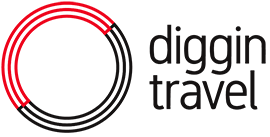

No Comments